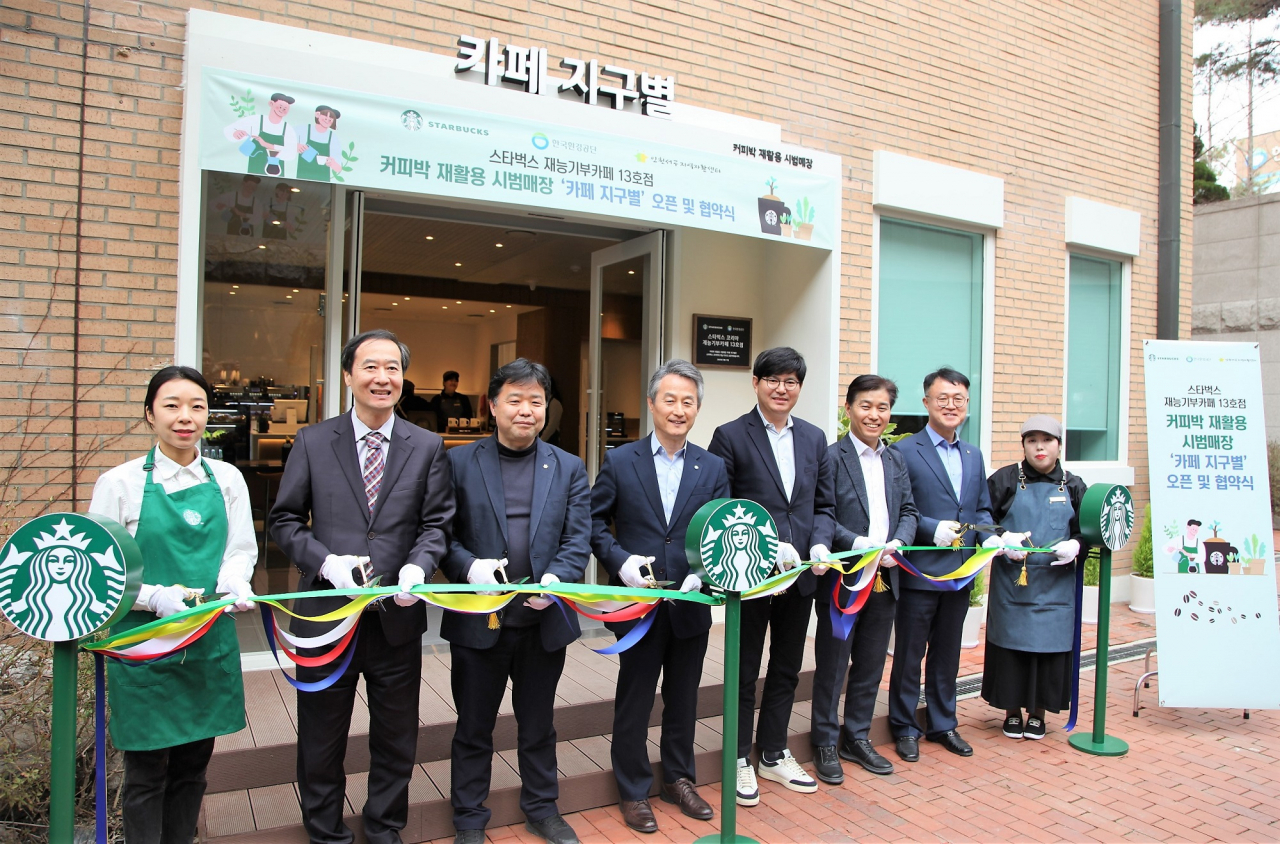 |
Ahn Byung-ok (third from left), chairman of the Korea Environment Corp., and officials of Starbucks Korea, the National Institute of Environmental Research, Incheon Seo-gu Self-sufficiency Promotion Center, National Institute of Environmental Human Resources Development and Han-River Basin Environmental Office pose for a photo at the opening ceremony held for the launch of the "Zero waste: eco-start cafe" at the Korea Environment Corp. headquarters in Incheon, Friday. (Starbucks Korea) |
Starbucks Korea said Sunday it opened its 13th eco-friendly outlet in the country, as part of its continuous attempts to recycle waste and create jobs for socially disadvantaged people.
Called "Zero waste: eco-star cafe," according to Starbucks, the pilot store recently opened in Incheon, and is jointly operated by the Korea Environment Corp. and Starbucks to ramp up the coffee franchise's environmental, social and corporate governance, or ESG, efforts.
"We will continue to expand the operation of eco-friendly stores to actualize social values and continue various support activities in the local community," said Sohn Jeong-hyun, CEO of Starbucks Korea.
"With the 13th cafe, we hope that coffee grounds, which is a finite resource, can be used in a more valuable manner, and we also hope that the cafe can contribute to expansion of job creation for the youth."
According to Starbucks, the cafe is furnished with furniture made from recycled coffee grounds. Fifty-six kilograms of coffee residue from some 4,000 cups of Starbucks coffee was used for the production of the cafe's tables, lampshades, art walls, pots and trays.
The store will further collect and recycle all coffee grounds discharged from the store, while operating as a store free from disposable cups to reduce carbon emissions.
Starbucks Korea said the cafe will create jobs by hiring youth from socially disadvantaged classes in the community with help from the Incheon Seo-gu Regional Self-Support Center. Proceeds from the store will also be used to help young adults stand on their feet.
Zero waste: eco-star cafe is part of Starbucks Korea's efforts across the nation to design cafes that hire from such groups as the disabled, elderly and youth with low income -- while attempting to initiate diverse kinds of eco-friendly activities.
"In line with net zero initiative set for 2050, we hope that this pilot store will serve as a leading example of minimizing and recycling coffee grounds. We will generously support young people to fulfill their dreams and revitalize the community," said Ahn Byung-ok, chairman of the Korea Environment Corp.






![[Today’s K-pop] Blackpink’s Jennie, Lisa invited to Coachella as solo acts](http://res.heraldm.com/phpwas/restmb_idxmake.php?idx=644&simg=/content/image/2024/11/21/20241121050099_0.jpg)
